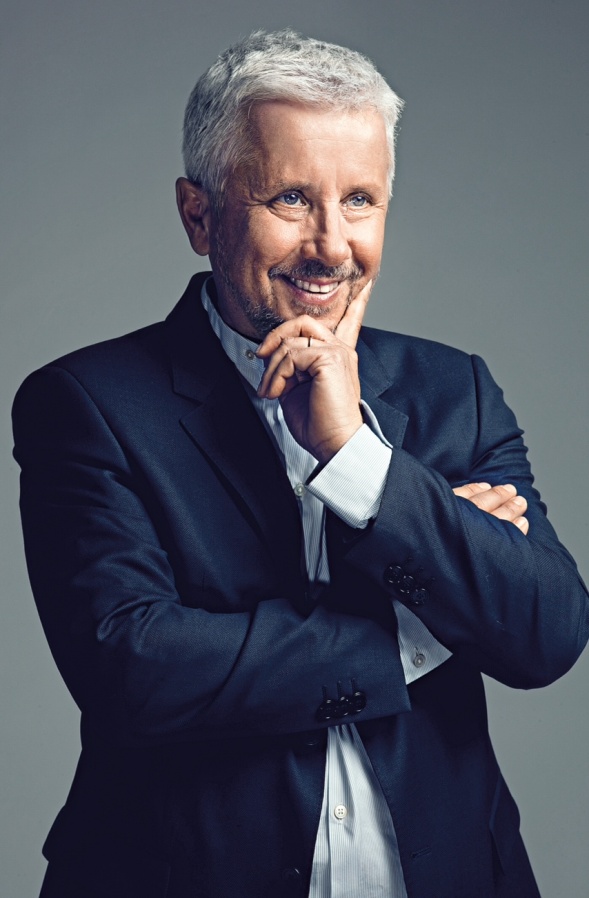|
|
|||
Interview with Rudolf Biermann

In the previous 10 years your production company IN Film has produced 20 films. What is the key factor for you when it comes to choosing a project?
It is not that simple to answer. Nevertheless, our priority is to search for topics and then find the best fitting scriptwriters and directors to carry them out. Still, as long as they are good, we are
open to finished scripts or ideas coming from the film-makers themselves.
Czechoslovak diplomat and politician, ambassador in London (1925 – 1938) and Minister of Foreign Affairs of Czechoslovak Republic (1940 – 1948), Jan Masaryk died under mysterious circumstances shortly after the Communists came to power. Yet A Prominent Patient treats a different period of his life.
It happened quite spontaneously. It was co-writer and director of the film Julius Ševčík who approached us with a project he had already been working on for some time. As the script was excellent, we agreed on cooperation quite quickly. Actually, it was the fact that the project did not focus on the so many times retold story of Masaryk's unresolved death, that won us over. And who knows, there might be a sequel to our story…
The lead role was entrusted to Czech actor Karel Roden. He belongs to much preferred actors in Czech Republic, has been cast notable roles in foreign productions, and actually portrayed Jan Masaryk’s father, the first Czechoslovak president. How much was the choice influenced by this?
We have known from the very beginning, I dare to say, that we want Karel Roden for the role. I don’t think we paid any attention to his popularity or the fact that he played Tomáš Garrigue Masaryk. Roden is very natural no matter if he is to act in Czech or English. And he is an excellent actor who goes into depth of the role; for the role of Masaryk, he did study his persona thoroughly. It is only fair to add that we were extremely happy when he accepted the part.
This will be your third film presented at Berlinale, after Landscape (d. Martin Šulík, 2001) and I Served the King of England (d. Jiří Menzel, 2007). What does being part of the Festival mean to you?
Actually fourth, if we count in Kawasaki's Rose (d. Jan Hřebejk, 2009), that was screened as the opening film for Panorama, at the time. Sensu strictu, I was the producer at Koliba Studios, when it produced When the Stars Were Red (d. Dušan Trančík, 1990) that was in the Competition in 1991. Still, five films for this long a period is not much to write home about. Berlinale demands high quality of the films they select. I believe the films we mentioned do have it.
You have worked with Slovak director Martin Šulík (Landscape – Berlinale 2001) on almost all of his films. Currently you prepare another common project. Could you introduce Tlmočník a bit?
It will be a road movie about serious issues, that will make us, Slovaks, face our own past, with focus on those pages of our history that have not been properly treated yet. Still, it will be a witty and charming film made with the typical Šulík touch.
As a Slovak national you have been working in Czech Republic for quite some time. What is your perception of the differences between Czech and Slovak audiovisual environment?
I consider both, Czech Republic and Slovakia “my territories”.To me it is more about making films, that bring me joy and satisfaction. About the differences, well, besides the most obvious as traditions, language, market size, there is the variability of styles of the scriptwriters, in their ability to write in genre, to write diverse stories. Slovakia seems to be more stuck in conviction that the auteur cinema deserves some privilege, excluding the idea of a producer being able to come with an original idea, a casting tip, or even being a partner in discussion on the various concepts. Yet, when it comes to digitalisation, Slovakia does more than well. I found putting together a filming crew in Slovakia quite tricky, as many of the best Slovak film professionals work in Czech Republic: Martin Štrba, Katarína Bieliková, Katarína Hollá, just to name a few.
published:
updated: 06.02.2017




